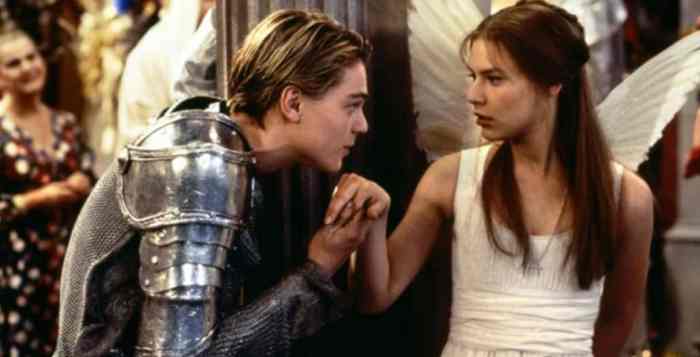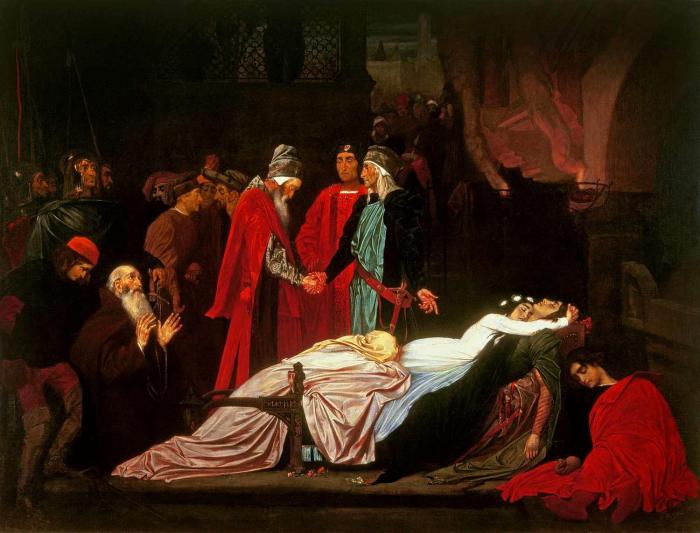Why does Lady Capulet think Juliet is crying? This question lies at the heart of a misunderstanding that underscores the generational divide and societal expectations in Shakespeare’s tragic masterpiece, Romeo and Juliet. As we delve into the narrative, we will uncover the reasons behind Lady Capulet’s assumptions and explore the true nature of Juliet’s sorrow.
Lady Capulet, a traditional and ambitious matriarch, initially assumes that Juliet’s tears stem from her grief over Tybalt’s death. She views Tybalt as a beloved family member and protector, and his loss is a devastating blow to the Capulet household.
However, Juliet’s true reasons for crying are far more complex and personal.
Lady Capulet’s Assumptions
Initially, Lady Capulet assumes that Juliet’s tears stem from her grief over Tybalt’s death. She believes that Juliet’s relationship with Tybalt was close and affectionate, as he was her cousin and playmate.
Lady Capulet’s perspective is influenced by the societal expectations placed on young women during this time period, who were expected to be subservient and emotionally dependent on their male relatives. She assumes that Juliet’s grief is a natural and expected reaction to the loss of a loved one.
Juliet’s True Reasons for Crying

However, Juliet’s true reasons for crying are more complex. While she is indeed saddened by Tybalt’s death, her primary source of grief is her secret marriage to Romeo, which she believes is doomed to fail due to the feud between their families.
Juliet’s emotional state is expressed through her words and actions. She laments her fate, saying, “O God, did Romeo’s hand shed Tybalt’s blood?” (Act 3, Scene 2). She also expresses her despair and hopelessness, saying, “O serpent heart, hid with a flowering face!” (Act 3, Scene 2), referring to the Friar’s plan to fake her death.
The Misunderstanding between Mother and Daughter

The communication gap between Lady Capulet and Juliet leads to a misunderstanding. Lady Capulet’s assumptions about Juliet’s grief are based on her own perspective and societal expectations, rather than a true understanding of Juliet’s feelings.
Juliet, on the other hand, is unable to express her true emotions to her mother due to the fear of being judged or punished. This lack of understanding between mother and daughter ultimately contributes to Juliet’s tragic fate.
The Impact of Societal Expectations: Why Does Lady Capulet Think Juliet Is Crying

The societal expectations placed on young women during this time period greatly influence Lady Capulet’s reactions. She believes that Juliet’s grief over Tybalt’s death is a natural and expected response, and she does not consider the possibility that Juliet may have other reasons for her sadness.
Juliet, however, is an individual with her own desires and aspirations. Her love for Romeo goes against the societal norms of the time, and she is forced to keep her marriage a secret. This conflict between her individual desires and the societal expectations placed upon her contributes to her tragic end.
Quick FAQs
Why does Lady Capulet assume Juliet is crying over Tybalt’s death?
Lady Capulet views Tybalt as a beloved family member and protector, and his loss is a devastating blow to the Capulet household. She assumes that Juliet’s tears are a natural expression of grief for her cousin.
What are Juliet’s true reasons for crying?
Juliet’s tears are a complex mix of emotions, including grief over Tybalt’s death, but also fear, confusion, and despair over her forbidden love for Romeo.
How does the communication gap between Lady Capulet and Juliet contribute to the misunderstanding?
Lady Capulet’s assumptions about Juliet’s grief stem from her own limited perspective and the societal norms of the time. Juliet, on the other hand, is reluctant to share her true feelings with her mother, fearing judgment or disapproval.